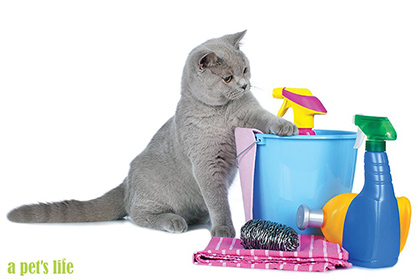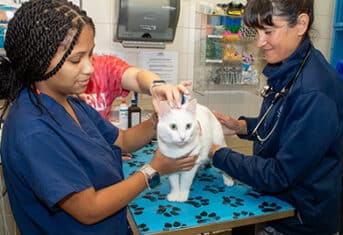Poison Prevention Week 2018: 31 Admissions in 62 Days

Poison Prevention Week 2018: 31 Admissions in 62 Days
Every morning at about 5 am, the Animal Medical Center’s overnight admissions list is distributed via email. The list is a fascinating snapshot of our emergency room. I have written about this list in a previous post highlighting AMC’s ER.
Since March 18-24 is National Poison Prevention Week, I have used the overnight admissions list to collate all the pets hospitalized for poisoning between December 21, 2017 and February 21, 2018. In those 62 days, 31 pets were sick enough to require hospitalization following ingestion of a toxic substance. The admissions list did not capture those pets treated in the ER and immediately discharged. Even so, the numbers tell how serious an issue poisoning is in our ER.
Every Age and Type of Pet Can Be Poisoned
The majority of hospitalizations for poisoning were dogs. I would have guessed the list would be composed of lots of silly puppies with indiscriminate eating habits. Wrong. Yes, there was a 2-month-old puppy, but the list contained several 12, 13 and 14-year-old dogs who should have known better than to eat what they did. The list also included three cats and a cockatoo.
Chocolate takes gold, while medications and marijuana tied for silver
Of the 31 pets admitted for poisoning, 11 had overindulged in chocolate. Six dogs, including a cute two-month-old mixed breed puppy and an 11-month-old poodle sniffed out their family’s marijuana stash and helped themselves to earn their spot on our ER list. Six different dogs overdosed on some form of human medication; and the most surprising to me was the dog who ate a bag of cough drops while his flu-stricken family struggled to recover from their illness.
Cats and Lilies
Only three cats were hospitalized during this time period and all three cats came to the ER because they had eaten lilies. Any form of lily, including Easter lily, tiger lily or Asiatic lily, can cause kidney failure if ingested by a cat. Happily, all three of these cats recovered and were discharged from the hospital to relieved families.
AMC’s ER has a wealth of experience in managing poisoning in pets, but many of these pets would not have required medical attention if chocolate and medication were stored carefully and floral arrangements selected judiciously.
Accidents do happen and here are the contact numbers for animal poisonings:
ASPCA Animal Poison Control
888-426-4435
Pet Poison Hotline
800-213-6680
For more in-depth information common toxicities in pets, please view a lecture by Dr. Carly Fox, staff doctor in Emergency & Critical Care at AMC.































